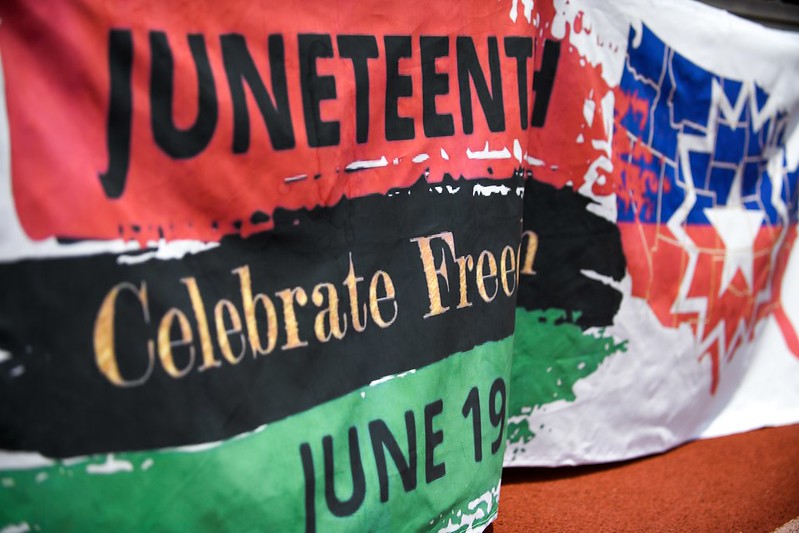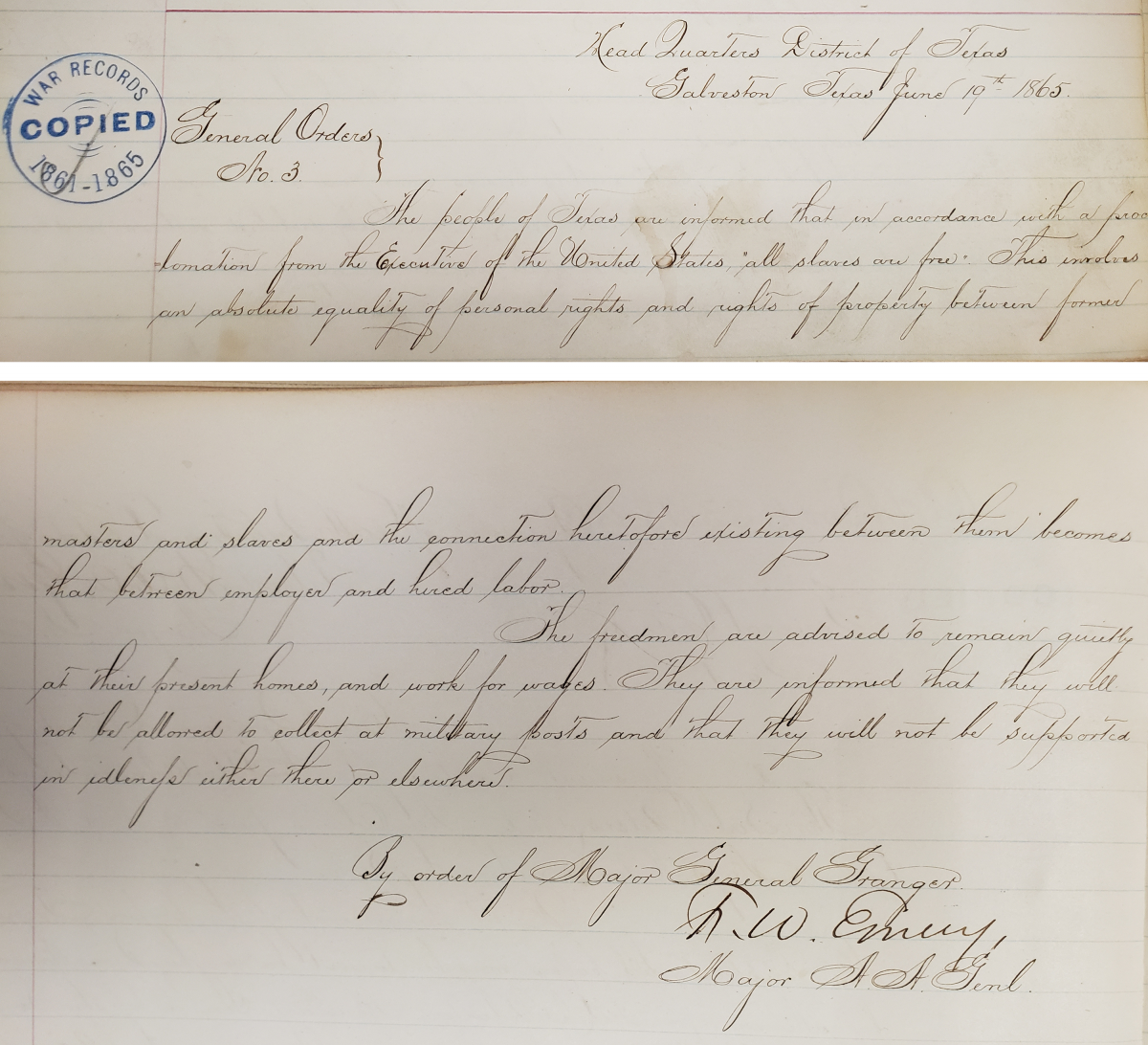This week in the Law Library we’re closed July 4th, asking rising 2 and 3Ls to fill out our legal research survey, covering more bar exam resources, providing new summer legal research tips, and celebrating Disability Pride Month.
Happy July 4th!
The Law Library will be closed July 4, 2023 to celebrate Independence Day. Law students and faculty will still have their 24/7 access. All of our online resources are also still available 24/7!
Fill Out Our Legal Research Survey
We’re asking rising 2Ls and 3Ls to fill out our Legal Research Survey so that we can better plan future research instruction.
Bar Exam Study Resources
Congratulations! You have made it through law school but now the bar exam looms. Don’t worry, the Law Library’s got your back. We have resources that can help. Check out our Bar Exam Research Guide.
The July 2023 bar examination will be administered at the Roberts Centre, 123 Gano Road, Wilmington, Ohio July 25-26, 2023. Ohio Bar Exam FAQs
5 More Bar Exam Resources
The Bar Exam is not a sprint, it’s a marathon so pace yourself! You can see the previous week’s featured bar exam resources on our June 26th, June 20th, June 12th, May 30, and May 22th posts. Check out this week’s Bar Exam Resource highlights below.
Exam Pro Bar Prep Workbook Revised
Available through the West Academic study aid subscription, this book uses frameworks as a guide to writing a top-notch essay. Based on the premises that the bar exam essay is often different in style, length, and scoring from the law school exam essay and that organization and issue identification can best be achieved by a structured, strategic approach rather than “winging it.” The opportunity to practice techniques allows students to further improve their writing.
Mastering Multiple Choice for Federal Civil Procedure MBE Bar Prep and 1L Exam Prep
Available through the West Academic study aid subscription, this fourth edition (expanded with new questions, new answers, and new explanations) encompasses material reflecting all Civil Procedure Rule amendments through December 2021, along with applicable new case law through February 2022. This multiple choice practice book is designed for: (a) bar exam takers, who are preparing to take the MBE multiple choice bar exam, and (b) 1L law students, who are preparing to take their course examinations. This practice book offers practical, easy-to-follow advice on multiple choice exam-taking strategies, clear suggestions on effective multiple choice practicing techniques, and a robust set of Civil Procedure multiple choice practice questions with answers and explanations (designed to simulate MBE-style questions). Tables help users decode the tested-topic for each practice question.
MPT and MPT Point Sheets
These describe the factual and legal points encompassed within the lawyering task to be completed by applicants for each of the tests and outline possible issues and points that might be addressed by an examinee.
These MPTs and Point Sheets are available online from the National Conference of Bar Examiners.
Scoring High on Bar Exam Essays
Available in Law Stacks at KF303 .G35 2006, this text provides step-by-step instructions on essay-writing systems and confidence-building practices. A review of the best and worst ways to respond to essay questions is included.
Strategies and Tactics for the MBE 2: Multistate Bar Exam
Available in Law Stacks at KF303 .E46 2013, Strategies and Tactics for the MBE 2 provides 300 additional questions to help you prepare for the Multistate Bar Exam (MBE). It is important to understand the issues of law tested on the exam and to learn how the exam questions are written to test your understanding of the law. With its comprehensive explanations of why one answer choice is the best answer and why the other choices are not, this text helps you gain the ability to select the best answer choice. The 300 questions are organized by subject area (Constitutional Law, Contracts, Criminal Law and Procedure, Evidence, Torts, and Real Property). Within each subject area, questions are broken down by subtopic, allowing you to locate and practice questions in your trouble areas.
Summer Legal Research Tips
Previously, we looked at initial steps to take when you get a summer research project, researching secondary sources, the structure and organization of statutory codes and where to find them, statutory finding tools, and using citators to validate statutes. This week we will cover how to research historical codes. Learn more about researching statutes in our Researching Statutes Guide or watch our videos on researching superseded and historical codes.
Effective Dates
You will need to connect the timeline of your cause of action or issue with the statute version that was in effect at that time. If the statute has been amended or repealed since the time in question, it is likely that the prior version is the one you will need to research. Always be aware of the timelines and any amendment history of relevant statutory provisions, including the date on which the amendment became or becomes effective!
The effective date is the date on which a statute becomes operative and enforceable. This date may or may not be the same date as the signing date or the date that a bill was passed. Generally, in the federal system, a law becomes effective when it has been enacted. There are exceptions to this since a law may have a specific effective date stated within it. The date of enactment is most easily located by looking at the list of session laws creating and amending a statute that are directly after the text of a statute in a code.
Many states have codified the effective dates for their statutes so that a law generally becomes effective on a certain date or number of days. For example, some states provide that laws become effective 90 days after signed. Other states provide that they become effective 6-months after being signed. Still others may provide a specific month such as October 1. Do be aware, however, that there are emergency effective dates for statutes. In Ohio, a signed act becomes law after 90 days. If the governor takes no action within 10 days of receiving the act, it becomes law without his or her signature. The Kentucky Constitution specifies that an act becomes law 90 days after the General Assembly Adjourns, unless the act contains a delayed effective date or an emergency clause.
Finding Historical Statutes
So where can you find historical statutes? HeinOnline has the United States Code going back to 1925. Govinfo.gov has the United States Code going back to 1994 as does Bloomberg Law. Fastcase has the United States Code going back to 2006. Westlaw’s USCA goes back to 1990 and the Lexis USCS goes back to 1992.
State code archives vary. HeinOnline has a library called State Statutes: A Historical Archive that covers superseded state statutes for all fifty states some going back until 1717. HeinOnline also has a library of state session laws that contains the session laws of all 50 U.S. states as well as Canada, Australia, Puerto Rico, Virgin Islands, and the D.C. Register. All states are current within 60 days of the printed publication, and all states are available back to inception!
Comparing Statutes
Lexis and Westlaw have features that allow you to pull up two statutory sections from different time periods and compare them. Use this feature to quickly compare any 2 versions of a statute to see where language has changed. In a Document view, you can click the Compare Versions button to compare the current version and a previous version of the statute. You can also do this through the History tab.
July Is Disability Pride Month!
Disability Pride Flag. A black flag with a lightning bolt of blue, yellow, white, red, and green. Source: Ann Magill/Public Domain
About Disability Pride Month
Disability Pride Month is an annual worldwide observance holiday during the month of July. It promotes awareness of disability as an identity, a community, a culture & the positive pride felt by disabled people. It directly challenges systematic ableism and discrimination.
UC Resources
Mikaila Corday, Ableism & Disability Justice, Racial Justice Resources for Activists, Advocates & Allies Guide
Topics in this guide page include ableism 101, ableism podcasts, ableism web resources, accessibility, accessibility resources, disability justice resources, veterans resources, and books.
Accessibility Resources for Students
Accessibility Resources leads the campus community in supporting students with disabilities by fostering an environment that places independence, inclusion and success at its core. They help provide a comprehensive collection of resources related to our office and accessibility for the UC Bearcat community.
Accessibility Resources for Faculty
Information for faculty regarding accessibility for themselves and their students.
UC Blue Ash Accessibility Resources
The UC Blue Ash College Accessibility Resources office (AR) seeks to ensure that all students with a documented disability can freely and actively participate in all facets of college life. To that end, Accessibility Resources creates opportunities for and promotes educational experiences, advocacy, and enrichment to persons with disabilities. Finally, AR seeks to increase the awareness and training among the UC Blue Ash College community so that students with disabilities continue to be perceived as people with promise.
Center for Intellectual and Developmental Disabilities
The Center was created and named in honor of Dr. Freeman and his service to individuals with IDD. The Center provides medical care, trains future physicians in a variety of specialties, contributes to research, and collaborates with numerous community organizations.
Disabled Faculty and Staff Association
The Disabled Faculty and Staff Association is an advocacy group that supports faculty and staff with all disabilities by supporting professional growth, educational pursuits, and striving for access across campus.
UC Clermont Accessibility Resources
The primary purpose of the Accessibility Resources office at the University of Cincinnati Clermont College is to give students with disabilities the opportunity to achieve their academic goals.
Accessibility 101
Resources for e-accessibility.
Katie Foran-Mulcahy, American Sign Language and Deaf Studies
CECH Library guide to support American Sign Language and Deaf studies.
Disability & Accessibility, DEI Book Club at Clermont
Provides resources and support for the Diversity, Equity, and Inclusion initiatives at Clermont College.
Ron Jones, Disability Law
Legal research guide on disability law.
Shannon Kemen, Mental Health Law Research Guide
This guide provides a quick overview of mental health law materials. It covers browsing for materials by call number range, textbooks, treatises, statutory law, administrative materials, and news.
Kathy Ladell, Sign Language at Clermont
This guide will help you with connecting to ASL resources within the Clermont College Library.
Katie Foran-Mulcahy, Special Education
CECH Library guide to resources including e-books, article databases, online help tutorials, useful websites, and more for researching and teaching special education.
UC Best Buddies
Best Buddies is a club that aspires to transform the lives of both individuals with disabilities, and those without. By forming friendships, Best Buddies further reduces the social space between peers and those with exceptionalities.
UC ASL Club
The UC ASL Club is a safe and friendly organization for students to learn American Sign Language and more about the Deaf Community.







